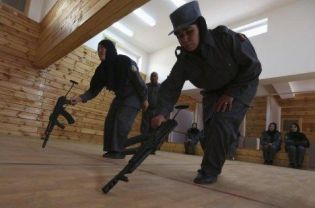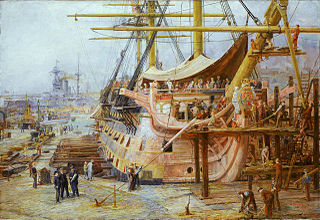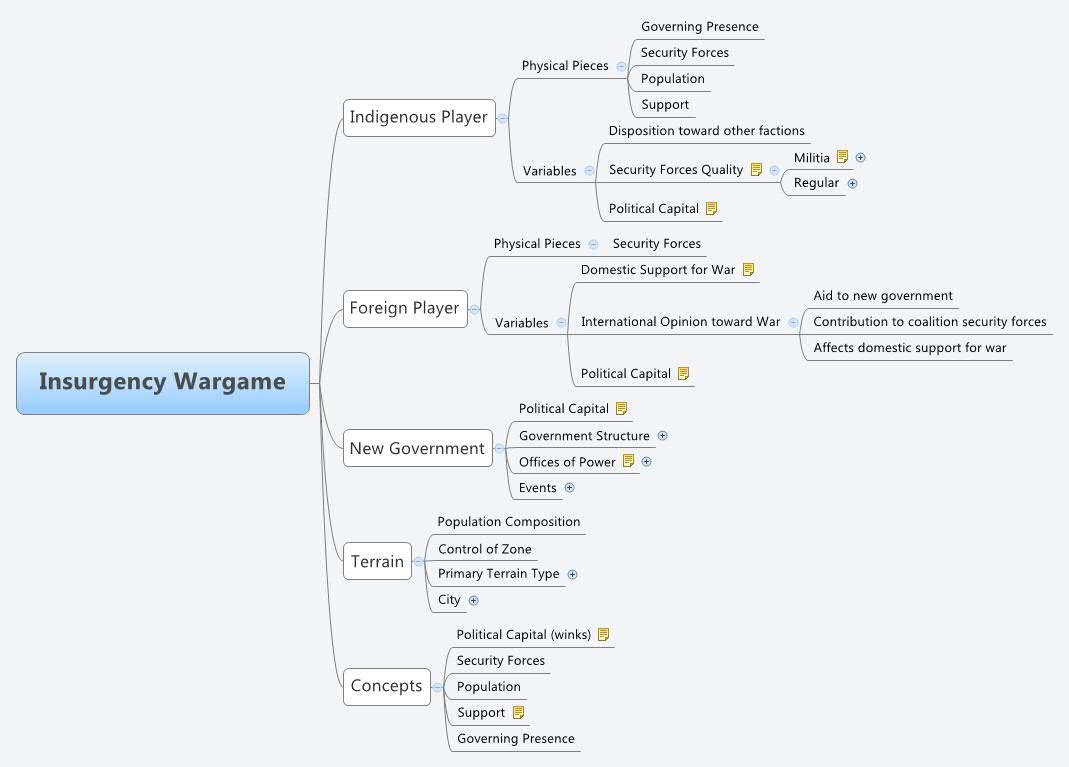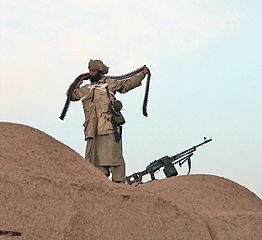Talking with the Taliban: a timeline
As hopes for potential peace talks with the Taliban once again ebb and flow, it’s worth taking a look at the history of efforts to engage with the Taliban. Since late 2007, discussions about discussions have oscillated with a fairly regular rhythm, and it does not seem the situation will be much different this time around. Below, you’ll find a timeline of key events and a chronological list of newspaper articles about talking with the Taliban (with a separate list for the Pakistani Taliban in particular) since late 2007.
Timeline of key events
2007
December: Michael Semple, Acting Representative for the EU in Afghanistan, and Mervyn Patterson, political officer with United Nations assistance mission, expelled for holding talks with Taliban representatives. Possibly provided Taliban commanders with financial support and mobile phone cards to persuade them to switch sides. US allegedly alerted Afghan authorities.
2008
September: On Eid, President Karzai said he repeatedly sought the intervention of the Saudi royal family to bring the Taliban to negotiations. On the same day, Mullah Omar called on Afghans to continue holy war against foreign troops. King Abdullah hosted a “Ramadan breakfast” with representatives from the Afghan government and Taliban at the end of September, but both sides denied any real negotiations took place.
October: Pashtun tribal leaders from Afghanistan and Pakistan scheduled to meet in Islamabad for a “jirgagai” (mini-jirga) to discuss tackling militant violence. No representatives from the Taliban were present. A draft recommendation in a White House assessment of Afghan strategy calls for some talks between the Afghan government and Taliban, with US participation. Idea supported by Gen. David Petraeus, who publicly endorsed talks with “less extreme Taliban elements.” Afghan government actively pursuing possibility of peace talks with Taliban and other insurgent groups.
November: President Karzai offers Mullah Omar safe passage for negotiations, says he would resist demands to hand the Taliban leader over to US authorities. Taliban spokesman Zabiullah Mujahid responded that the Taliban “will not take part in any peace talks with Karzai… until such a day when foreign forces leave Afghanistan.”
2009
March: Afghan government reportedly in preliminary discussions with Taliban representatives to discuss potential for negotiations.
August: Afghan presidential candidates weigh in on talks with Taliban. Karzai vocally supports negotiations, promises to hold tribal gathering with Taliban and Gulbuddin Hekmatyar if re-elected. Abdullah Abdullah and Ashraf Ghani say grass-roots approach through community and tribal councils must come first, and Mr. Ghani advocates cease-fire as next step before peace negotiations.
September: Indian Foreign Minister S.M. Krishna calls for a “political settlement” in Afghanistan, saying that military solution is not possible. Also makes claim that Pakistani ISI aids Afghan Taliban in its insurgency.
October: East Timor President Jose Ramos-Horta calls for talks with Taliban. Obama administration begins considering high-level talks with Taliban.
November: In face of negative assessments of Afghan war, US and European governments differ on how talks with Taliban might take place. US reportedly favors engaging with low-level militants, while some European governments advocate top-level peace talks.
2010
January: Al Jazeera reports (Youtube) that Afghan and Taliban officials had secret talks in the Maldives. The Taliban’s leadership council releases a statement rejecting peace talks and calling for the withdrawal of foreign forces. Mohammad Masoom Stanekzai, who is in charge of reconciliation talks, dismisses Taliban denials and says contacts between the government and the Taliban have been occurring and will continue.
February: President Karzai travels to Saudi Arabia to try and revive peace talks with Taliban leadership. Mullah Abdul Ghani Baradar, allegedly head of the Taliban’s political arm and chief military strategist, is captured in Pakistan.
September: President Karzai’s pursual of high-level talks and reconciliation with the Taliban alienates leaders of Afghanistan’s largest ethnic minority groups.
October: US forces reportedly facilitating passage of senior Taliban leaders to Kabul in support of talks between the Afghan government and Taliban leadership.
November: A man claiming to be Taliban official Mullah Akhtar Muhammad Mansour revealed to be an impostor, dashing hopes of progress in peace talks.
2011
February: President Karzai calls for the release of Taliban official Mullah Khairullah Khairkhwa from Guantanamo Bay to join in reconciliation talks.
April: Mohammad Masoom Stanekzai confirms the government has been engaging in reconciliation talks with the Taliban for some time, with US support.
May: US officials reportedly participated in meetings with a high-level Taliban official, Tayeb Agha (who was arrested by Pakistani authorities the previous year and released). In June, President Karzai publicly asserts US involvement in talks with the Taliban, and US Defense Secretary Robert Gates confirms that the US was involved in early-stage talks. Secretary of State Hillary Clinton calls talks “very preliminary.”
October: The Afghan government ceases peace talks with the Taliban, two weeks after men claiming to be Taliban representatives killed Afghan peace negotiator Burhanuddin Rabbani.
December: Afghanistan recalled its ambassador in Qatar, protesting attempts to exclude Kabul from US-backed efforts to open a Taliban office. The US, Germany and Qatar have been attempting to revive peace talks. The US reportedly considers transferring Taliban prisoners from Guantanamo Bay in exchange for confidence-building measures from the Taliban officials.
2012
January: The Taliban agree to open an office in Qatar for peace talks. President Karzai initially makes demands for his support, but by 5 January supports direct US-Taliban talks.
List of Articles
I’ll have to ask my US readers to forgive the international date format. I originally prepared this for a British research organization, and it would take ages to reformat the dates to my standard style.
Afghan Taliban
2007
- 27/12/2007 Afghanistan to Expel 2 Officials (NYTimes)
- 30/12/2007 Diplomats expelled ‘at behest of the US’ (Telegraph)
2008
- 30/9/2008 Karzai Sought Saudi Help With Taliban (NYTimes)
- 9/10/2008 Saudi Arabia: Can it make peace in the wider region? (Economist)
- 16/10/2008 No time to go wobbly (Economist)
- 26/10/2008 Pakistani and Afghan Pashtun leaders meet (NYTimes)
- 28/10/2008 U.S. Mulls Talks With Taliban in Bid to Quell Afghan Unrest (WSJ)
- 29/10/2008 Afghanistan Tests Waters for Overture to Taliban (NY Times)
17/11/2008 Afghanistan’s Karzai Offers Safety if Taliban Leader Will Negotiate (Washington Post)
18/11/2008 Taliban Reject Peace Talks (NY Times)
18/11/2008 Op-ed: Don’t Negotiate With the Taliban (WSJ) - 21/11/2008 Editorial: Talking With the Taliban (NY Times)
2009
- 1/2/2009 Op-ed: Islamists you can talk to (NY Times)
- 11/3/2009 As U.S. Weighs Taliban Negotiations, Afghans are Already Talking (NY Times)
- 7/5/2009 Op-ed: Talked to Death (NY Times)
- 17/8/2009 Peace Talks With Taliban Top Issue in Afghan Vote (NY Times)
- 1/9/2009 Is It Time to Negotiate With the Taliban? (NY Times)
- 23/9/2009 Indian Minister Urges Afghan Political Settlement (WSJ)
- 29/10/2009 Op-ed: A Plan for Afghanistan (WSJ)
- 30/10/2009 Support Grows for Pursuit of Peace Deals With the Taliban (WSJ)
- 13/11/2009 A grim prospect: NATO may lose in Afghanistan (Economist)
- 23/11/2009 More talk of Taliban talks (Long War Journal)
2010
- 23/1/2010 The Taliban Don’t Seem Ready to Talk (NY Times)
- 27/1/2010 Secret talks held over Taliban ‘integration’ (Al Jazeera, video)
- 27/1/2010 Taliban reject peace talks (Long War Journal)
- 1/2/2010 Afghan Official Dismisses Taliban Denial of Talks (NY Times)
- 2/2/2010 Karzai, in Saudi Arabia, Pursues Taliban Talks (WSJ)
- 16/2/2010 A setback for the Taliban: Opening a new front (Economist)
- 18/5/2010 Tickets to the endgame (Economist)
- 31/5/2010 America and the Afghan government: When Barack met Hamid (Economist)
- 10/9/2010 Karzai Divides Afghanistan in Reaching Out to Taliban (WSJ)
- 14/10/2010 U.S. Backs Taliban Talks (WSJ)
- 14/10/2010 NATO forces facilitating Afghan-Taliban talks (Washington Post)
- 18/10/2010 Op-ed: Time to Talk to the Taliban (NY Times); Response: Some Questions to Ask (NY Times)
- 19/10/2010 Taliban Elite, Aided by NATO, Join Talks for Afghan Peace (NY Times)
- 28/10/2010 Talking to the Taliban (Economist)
- 28/10/2010 Lunch with the Taliban (Economist)
- 22/11/2010 Taliban Leader in Secret Talks Was an Impostor (NY Times)
- 24/11/2010 Sign of War Gains Proves False (WSJ)
2011
- 8/2/2011 Karzai Calls on the U.S. To Free a Taliban Official (NY Times)
- 6/4/2011 Top Afghan Official Confirms Talks With the Taliban (NY Times)
- 7/4/2011 Why We Must Talk (NY Review of Books)
- 12/4/2011 Op-ed: Bring in the Taliban (NY Times)
- 12/4/2011 Op-ed: An Endgame for Afghanistan (NY Times)
- 12/5/2011 Glimmers of hope (Economist)
- 17/5/2011 U.S. speeds up direct talks with Taliban (Washington Post)
- 26/5/2011 U.S. Has Held Meetings With Aide to Taliban Leader, Officials Say (NY Times)
- 18/6/2011 Lashing Out, Karzai Says U.S. Is Talking to the Taliban (NY Times)
- 19/6/2011 Gates Acknowledges Talks with Taliban (NY Times)
- 19/6/2011 Is the US really negotiating with the Afghan Taliban? (Long War Journal)
- 24/6/2011 Clinton: Talks with Taliban not ‘pleasant’ but ‘necessary’ (Washington Post)
- 25/6/2011 Taking a Risk With Taliban Negotiations, Even if the Talks Are Real This Time (NY Times)
- 9/9/2011 Taliban Need ‘Pain’ to Talk, Envoy Says (WSJ)
- 1/10/2011 Afghanistan Gives Up on Taliban Talks (WSJ)
- 5/10/2011 Karzai Confirms Taliban Talks on Hold (WSJ)
- 5/10/2011 For U.S., a Tricky Path in Dealing With Afghan Insurgents (NY Times)
- 15/12/2011 Afghans Pull Envoy to Qatar (WSJ)
- 15/12/2011 Afghan Rebuke of Qatar Sets Back Peace Talks (NY Times)
- 19/12/2011 Secret U.S., Taliban talks reach turning point (Reuters)
- 26/12/2011 Afghanistan sets ground rules for Taliban (Reuters)
- 30/12/2011 US hopes to renew talks with Taliban for Gitmo prisoner transfer; Karzai said to have doubts (Washington Post)
2012
- 3/1/2012 Landmark on Twisting Path Toward Talks (NY Times)
- 4/1/2012 Taliban Agree to Open Office for Peace Talks (WSJ)
- 5/1/2012 Afghan President Karzai supports direct U.S.-Taliban talks (Washington Post)
Pakistani Taliban
2008
- 1/5/2008 Pakistan’s tribal areas: Dangerous deals (Economist)
- 8/6/2008 Taliban Leader Flaunts Power Inside Pakistan (NYTimes)
- 26/6/2008 Pakistani Taliban Say They Killed 28 Men From Peace Group (NYTimes)
- 29/6/2008 Pakistan Shells Islamic Militants Near Peshawar (NYTimes)
- 30/10/2008 Pakistan Demands End to U.S. Strikes Against Islamic Militants on Border (WSJ)
2009
- 16/2/2009 Taliban Agree to Pakistan Cease-Fire (WSJ)
- 9/4/2009 Swat peace agreement collapses (Long War Journal)
- 28/4/2009 Fight Escalates Between Pakistani Military, Taliban (WSJ)
- 26/4/2009 Pakistan Fires Key Architect of Swat Peace Deal (WSJ)
- 2/5/2009 Pakistan Pursues Two-Track Approach to Taliban (WSJ)
- 5/5/2009 Pakistan Abandons Truce in Swat (WSJ)
- 7/5/2009 Fighting the Pakistani Taliban: The Swat test (Economist)
- 8/5/2009 Pakistan Cleric, Once a Peacemaker, Backs Taliban (WSJ)
2010
- 5/10/2010 Pakistan Urges On Taliban (WSJ)
2011
- 21/3/2011 Pakistan ready for peace with the Taliban? (Long War Journal)
- 10/10/2011 Pakistani Taliban signal willingness to conduct peace talks (Long War Journal)
- 17/10/2011 Pakistan leans toward talks with Taliban, not battle (Washington Post)
- 21/11/2011 Pakistani Taliban, government in peace talks (Long War Journal)
- 22/11/2011 Pakistani Military denies role in talks with Taliban (Long War Journal)
- 10/12/2011 Pakistan Taliban commander confirms peace talks (AP)
- 10/12/2011 Pakistan frees 145 Taliban fighters as negotiations progress (Long War Journal)










“Hopes”? What hope for the girls whose faces they burned off with acid? And will do again when we leave?
Anyone who talks to terrorists is a terrorist – and needs to be treated like one. And to see his family treated like they treat their victims.
Don’t talk the talk if you’re the same kind of sick hypocrite who isn’t willing to walk the walk.
John,
I’m not sure what your hyperbolic comment is meant to be in reply to. If you read past the second word of this post, you’ll see that it is a collection of links to articles and op-eds presenting a timeline of the history of US-Taliban peace talks.
You’re welcome to find op-eds advocating such talks (some of which are linked on this page) and go call their authors terrorists.
This has been a great help! Thanks so much! (: